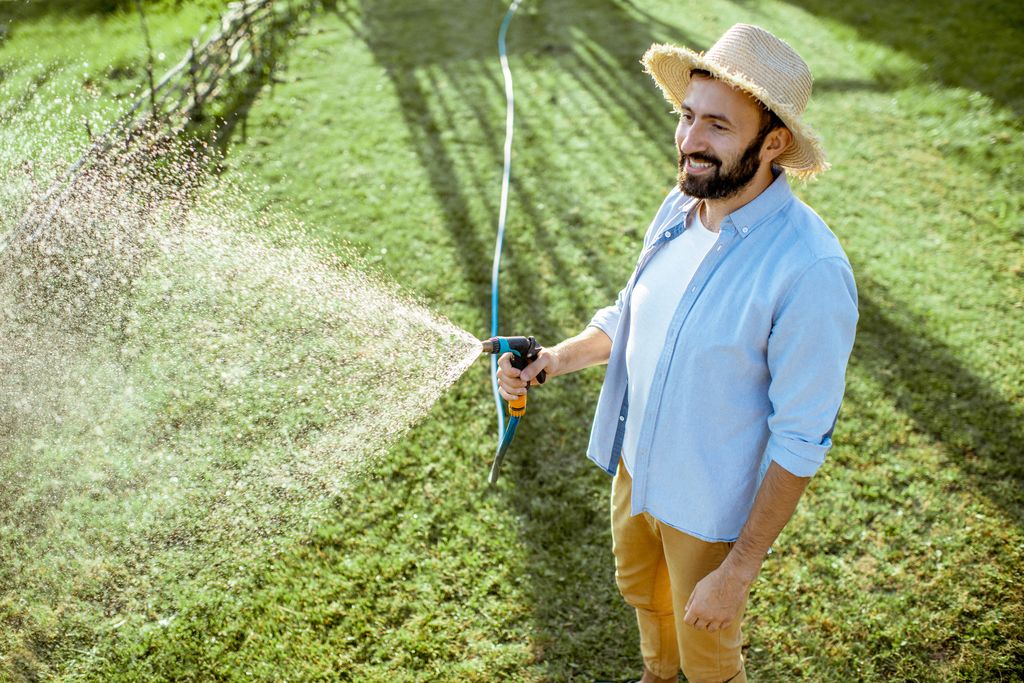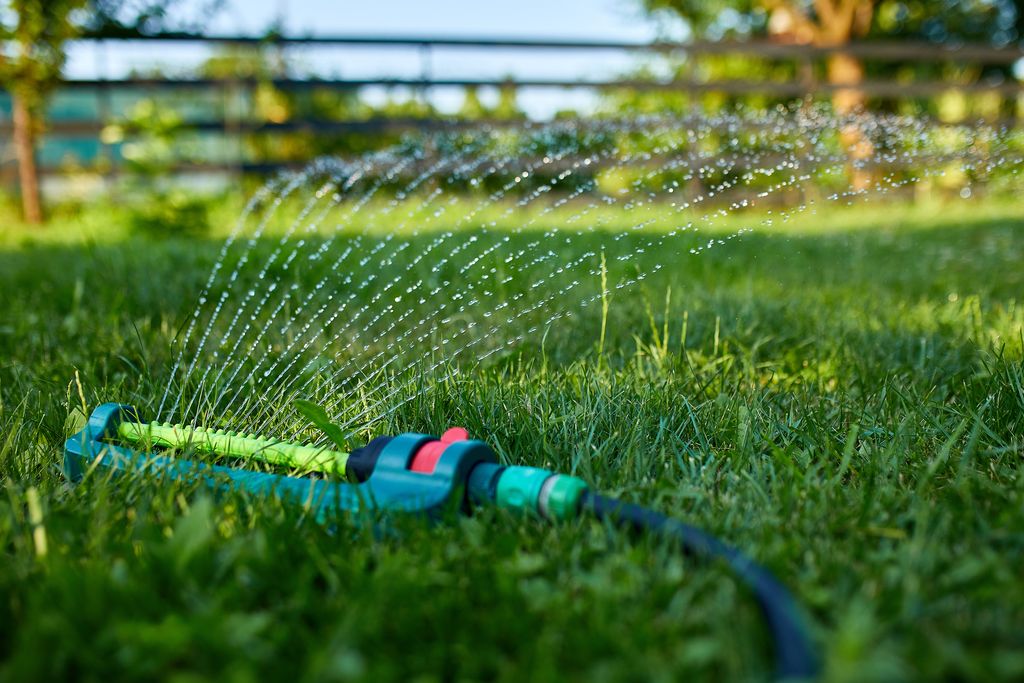Maintaining a lush, green lawn while conserving water can be challenging. With the right strategies, you can achieve a beautiful lawn without wasting water. Here are some effective water-saving strategies for your home lawn.
This post contains affiliate links. As an Amazon Associate, I earn from qualifying purchases at no additional cost to you.
Choosing the Right Grass
Selecting drought-tolerant grass varieties can make a significant difference in water usage. Grasses like fine fescue and tall fescue are known for their deep root systems and resilience to dry conditions.
Benefits of Drought-Tolerant Grasses:
- Require less water
- Deep root systems access more soil moisture
- Greater resilience during dry periods
Optimize Your Irrigation System
Efficient watering practices are key to saving water. Water your lawn deeply and infrequently to encourage deep root growth. Watering early in the morning reduces evaporation and ensures more water reaches the roots.
Steps to Optimize Irrigation:
- Audit your system: Check for leaks, broken sprinkler heads, and ensure even water distribution.
- Adjust watering schedules: Water early in the morning to reduce evaporation.
- Use efficient irrigation methods: Drip irrigation and soaker hoses are more efficient than overhead sprinklers.
Conducting Irrigation Audits
Regularly auditing your irrigation system ensures it operates efficiently. Check for leaks, broken sprinkler heads, and ensure even water distribution. Adjust your system based on the audit results.
Key Points of an Irrigation Audit:
- Inspect for leaks and damage
- Measure water output with catch cans
- Adjust sprinkler heads for uniform coverage
Utilizing Smart Technology
Incorporate smart irrigation controllers and soil moisture sensors to optimize watering schedules based on real-time data. These technologies prevent overwatering and adapt to changing weather conditions.
Advantages of Smart Irrigation:
- Adjusts watering based on weather
- Prevents overwatering
- Saves water and money
Improving Soil Health
Healthy soil retains moisture better. Aerate your lawn and add compost to improve soil structure, water infiltration, and retention.
Soil Improvement Tips:
- Aerate to reduce compaction
- Add organic matter to improve water retention
- Test soil pH and amend as needed
Recycling Water
Collecting and reusing rainwater is an eco-friendly way to irrigate your lawn. Rain barrels can store rainwater, providing a free and sustainable water source.
How to Recycle Water:
- Install rain barrels to collect rainwater
- Use greywater from sinks and showers (where legal)
- Redirect downspouts to lawn areas
Adjusting Your Expectations
During drought periods, allowing your lawn to temporarily discolor is okay. Most lawns recover quickly with proper watering once conditions improve.
Managing Lawn Health in Drought:
- Accept some browning during dry periods
- Focus on watering deeply when necessary
- Maintain a higher mowing height to reduce stress
Conclusion
Implementing water-saving strategies is essential for maintaining a healthy lawn while conserving water. Choose drought-tolerant grasses, optimize your irrigation system, and use smart technologies to create a sustainable, water-efficient lawn. With these tips, you can enjoy a beautiful lawn year-round while being mindful of water resources. By adopting these practices, you contribute to water conservation efforts and promote a more sustainable environment.
Happy lawn care!



